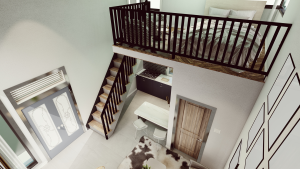The term “architect” often conjures images of blueprints, scale models, and grand structures reaching skyward. However, the role of an architect encompasses much more than just drawing plans and overseeing construction. In this article, we delve into what an architect is, the scope of their responsibilities, and the cost of hiring one for your project.
What does an architect do?
An architect is a trained and licensed professional responsible for planning and designing buildings. They work closely with clients to understand their needs, preferences, and budget constraints. From this initial consultation, the architect develops a concept, turning these ideas into architectural drawings and 3D models. The role doesn’t stop there; architects often oversee the construction process to ensure that the design is accurately executed, handling everything from material selection to compliance with local building regulations.
The responsibilities of an architect can be broad and may include:
- Conceptualisation: Creating an initial design concept based on the client’s needs and vision.
- Planning Applications: Assisting with or taking care of planning permissions and other regulatory requirements.
- Technical Drawings: Preparing detailed architectural drawings that builders will use during construction.
- Material Selection: Advising on or choosing the materials to be used, ensuring they meet both aesthetic and functional needs.
- Construction Oversight: Supervising the construction process to ensure the design is faithfully executed.
- Consultation: Providing expert advice on design modifications, potential challenges, and solutions during the building phase.
Architects often work closely with other professionals, such as civil engineers, interior designers, and even landscape architects, to create a cohesive and well-integrated project.
What does an architect charge?
The cost of hiring an architect can vary widely depending on the scope of the project, the reputation of the architect, and the geographical location. In the UK, for instance, fees can range from a few thousand pounds for smaller residential projects to significantly more for large commercial developments. Here are some common pricing structures you might encounter:
- Percentage of Construction Cost: The architect’s fee is calculated as a percentage of the total cost of the construction. This is common for large projects and can range from 5% to 20%.
- Fixed Fee: For smaller projects or tasks with a well-defined scope, architects might charge a fixed fee.
- Hourly Rate: Some architects charge by the hour, especially for consultation services or smaller tasks.
- Per Square Foot: This is less common but might be applicable for very straightforward projects where the architect’s involvement is limited.
Before committing to an architect, it’s advisable to request a detailed quote outlining the scope of work and the associated costs. This often starts with a no-obligation consultation to discuss your project’s specifics.
The Importance of Local Area Knowledge
Architects with local area expertise bring a unique set of advantages to any project. This is particularly important in areas with specific architectural traditions or stringent planning regulations. For example, architects will have a keen understanding of the West Midlands’ unique building requirements and local aesthetic, thereby ensuring that your project is both compliant and harmonious with the surrounding environment. Local architects also have the advantage of a better understanding of local planning officers, which can be beneficial when submitting planning applications.
Architectural Styles and Specialisations
Not all architects are the same; many specialise in particular types of architecture or have specific stylistic preferences. Whether you’re interested in a modern, minimalist design or a more traditional, classical approach, it’s crucial to choose an architect whose portfolio aligns with your vision. Some architects focus solely on residential projects, while others may have extensive experience in commercial or public buildings. Take the time to review an architect’s past work and discuss your specific needs to find the right fit.
Conclusion
An architect plays a crucial role in transforming a vision into a tangible structure. Their expertise goes beyond creating aesthetically pleasing designs, delving into the technicalities of construction, planning permissions, and even project management. While the cost of architectural services can vary, the value they add in terms of design integrity, functional utility, and overall project success is often invaluable. Therefore, if you’re planning a construction project, whether small or large, an architect is an investment worth considering.







